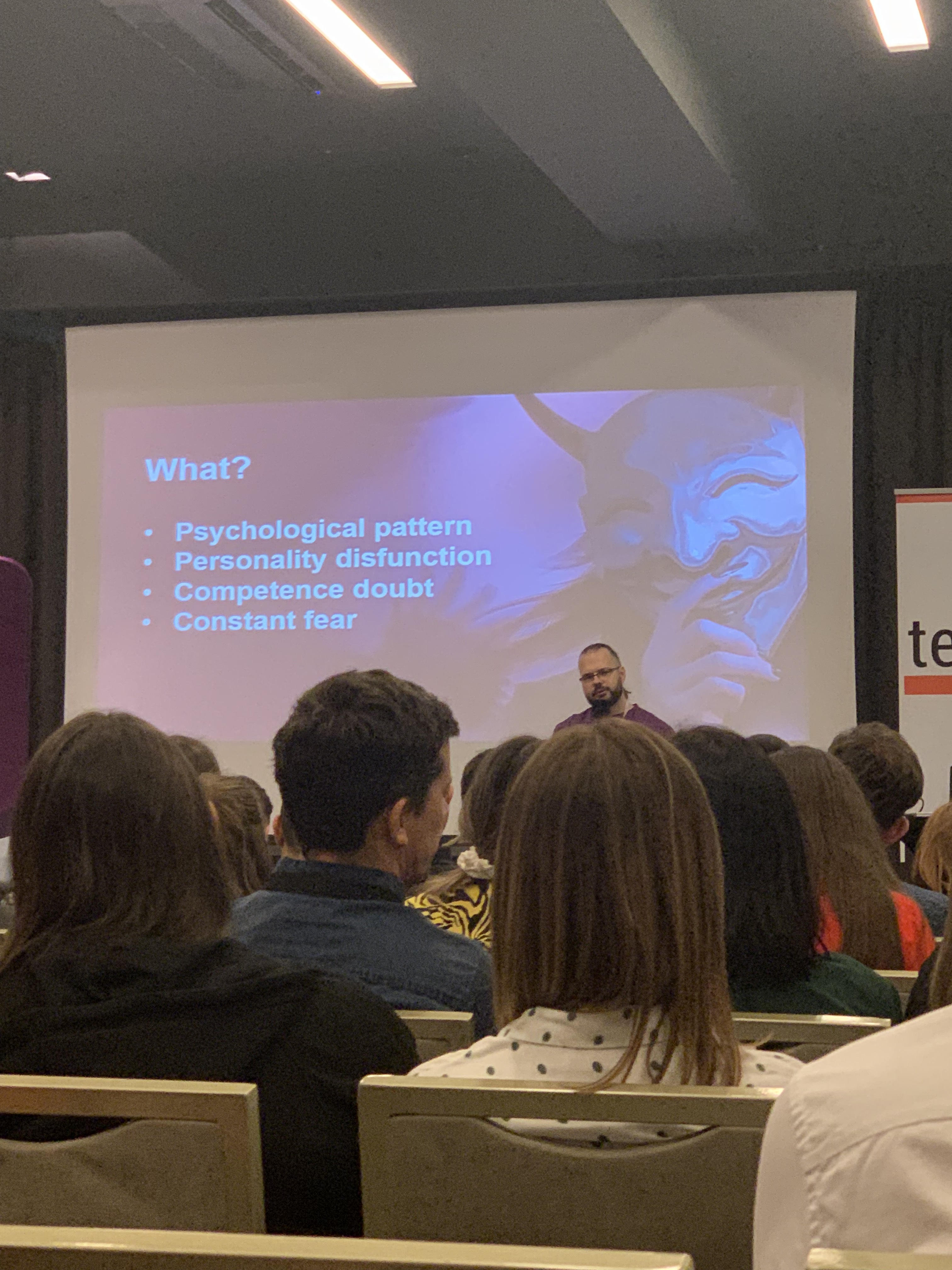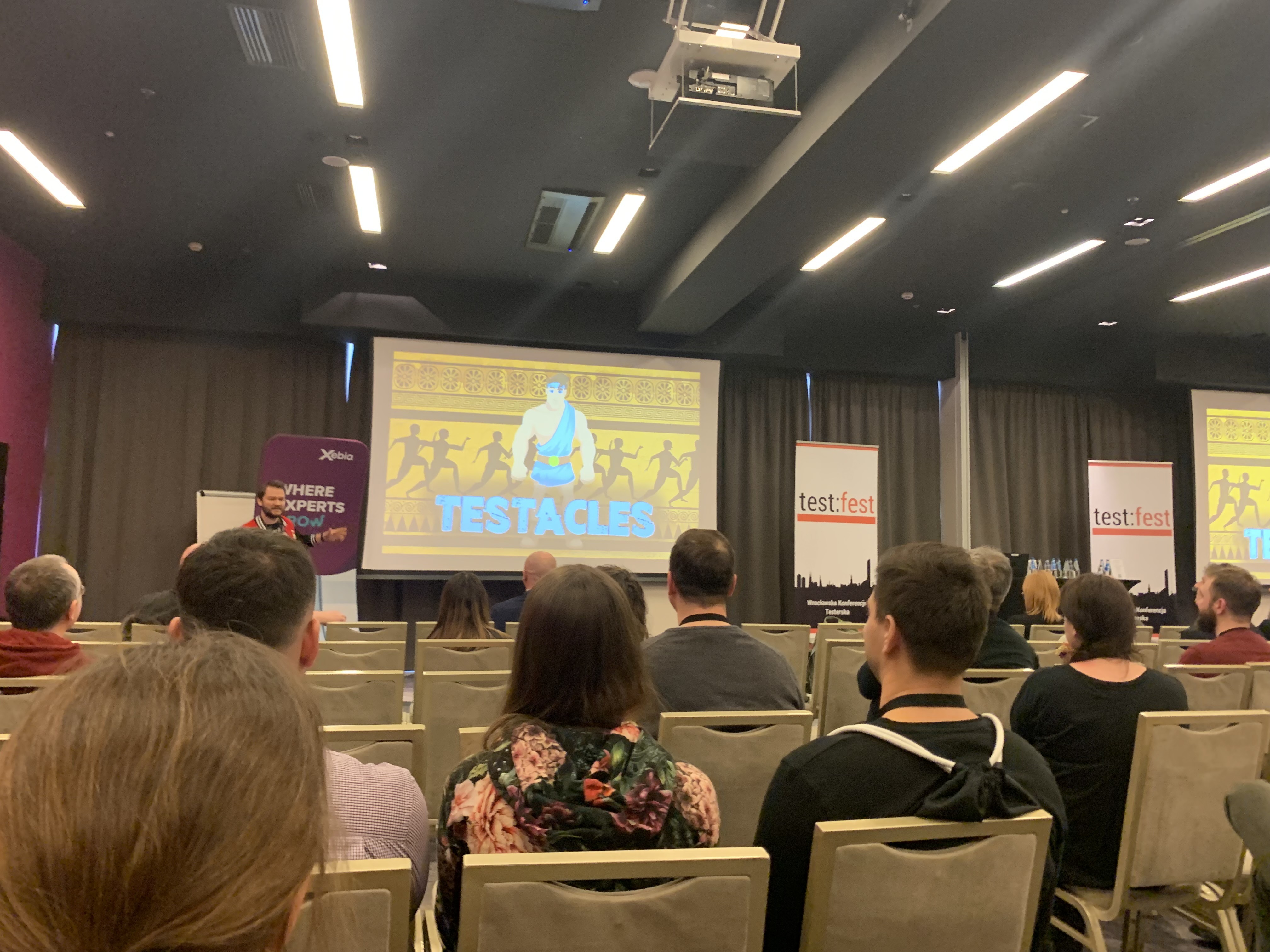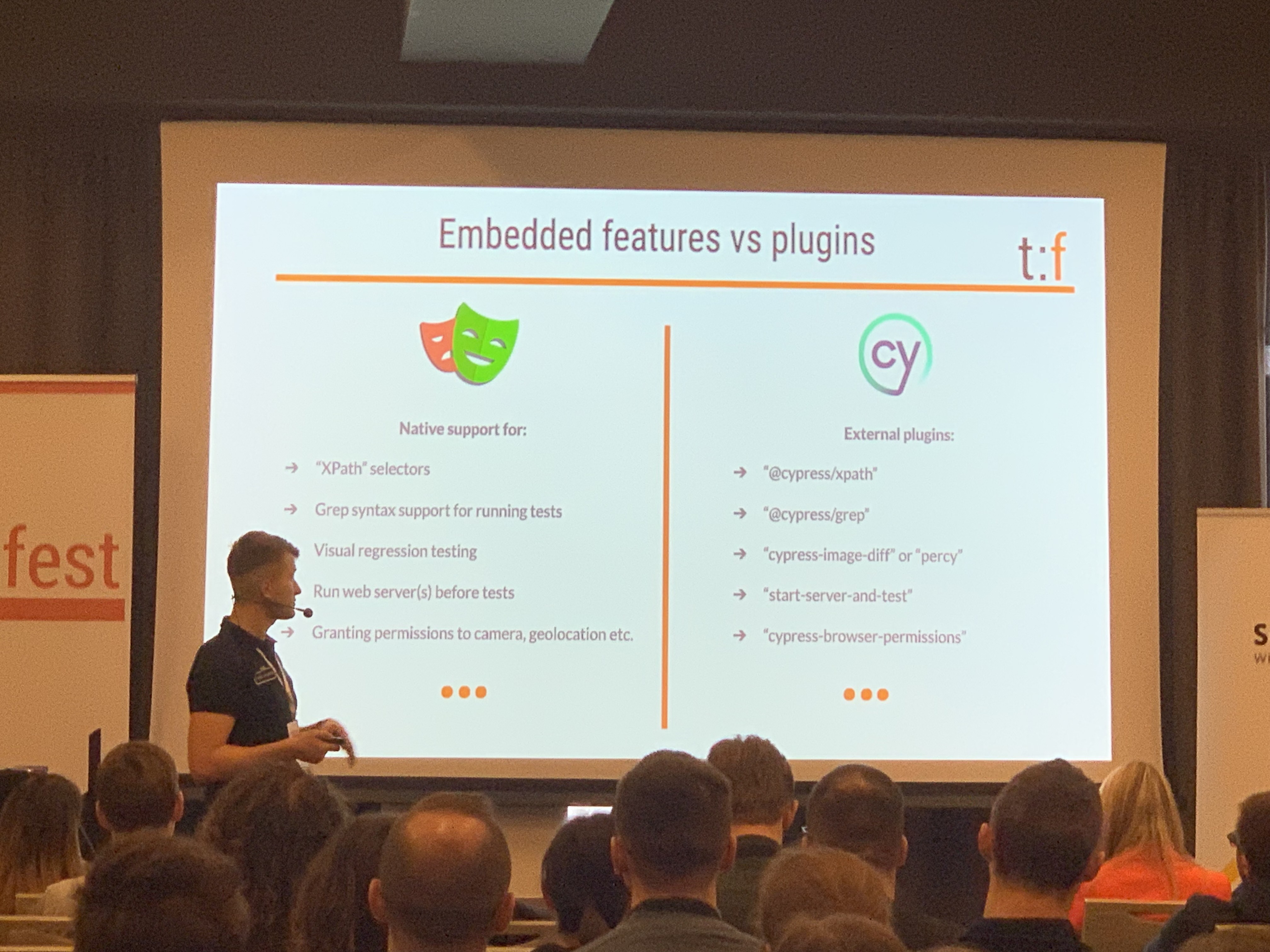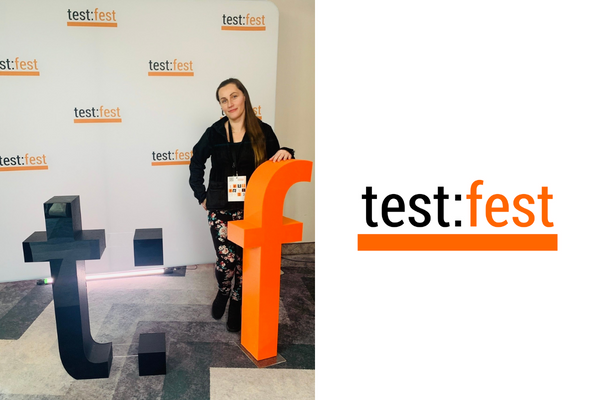test:fest – testing conference with Accessibility workshop
At the Wrocław test:fest on 11th March 2023, Marysia Pajchrowska, QA Specialist from Panda Group, unlocked layers of inspiration in engaging presentations about imposter syndrome, green IT, and Roman Mythology Heroes to WCAG 2.1 guidelines. How inspirational was it? And what insights did she share? We asked Marysia for more details!
Panda Group: Why did you go to the test:fest?
Marysia: Accessibility was a major draw to the Conference from my point of view, and I enjoyed learning from renowned experts on this important topic. As I gain new insights, it excites me to be able to share them with my colleagues at Panda Group.
Wasn’t this your first test:fest? Was it different from the previous one?
Yes, for me it was different because it was rather directed to mid and senior testers, while the previous one I attended a few years ago was dedicated to ones starting their career as testers. It made me realize how much progress I have made over the years. However, I must say that I often realize how much I still have to learn.
Taking part in test engineering courses allows me to advance my skills, and this time around I realized how far I have come since the last course for juniors. Even so, each experience provides a unique opportunity to discover areas for improvement – one of life’s great journeys!
And what did you discover – was it what you expected?
My main goal was the accessibility workshop, and you know it was not easy to qualify for the conference and for the mentioned workshop. So when I got the news that I was on the list, I was really happy. I was expecting practice and I got it. We tested public and government websites taking into account WCAG with Web Content Accessibility Guidelines (WCAG) 2.1. We were guided by 4 principles:
- Perceptibility;
- Functionality;
- Intelligibility;
- Robustness.
What assistive technologies did you use for testing?
We used some tools to test how people with various disabilities perceive digital content, such as audio. We used the MVGA page reader. Blind people use readers to understand digital content. When you listen to the page content, you can easily discover errors and areas for improvement. We also used the Color Contrast Checker to find out if the colors are visible to the visually impaired people. There are precise rules to make buttons or header contrast tangible.
What else was missing in terms of the accessibility of public pages?
We discovered a problem with calendars which was not possible to leave. This is a common issue when it comes to online forms. You get to a certain point and can’t move forward or backward. You get locked in a loop. Also, not many pages have a captcha with headphones to make it audible for the deaf.
It would seem that website navigation is a huge problem for disabled people.
Yes, it is. Most menus are hard to get through, moving forward and backward. The same is true regarding the checkout process, which should be smooth and allow steps in different directions without losing the input or process progress. The page title should be created from detail to general information to increase tangibility.
Is User Experience not enough here?
I would say the general UX perspective is enriched by the perspective of people with disabilities. It’s a deeper dive into UX. For example, when it comes to errors in communication. Information on how to fill out the form should be clearly explained, and when an error occurs, it’s not enough to use red for communication, because there are people who do not distinguish colors. There should be added text explaining how to correct the information.
The same is true for spinners showing the progress of a process, which should also be accompanied by text explanations to help understand what stage of the process the user is at.
What tools can be used for a general web accessibility audit?
During the workshop, we used the ARC toolkit. However, there are several others available on the market and we compared them in one of our blog posts Benefits and best practices for E-commerce website accessibility
And what has been inspiring for your personal development?
I was surprised to find that other testers have had similar experiences in developing their skills and feel the same way when they have a lot of tasks to do and spending too much time on one of them makes them feel they are not good enough at what they do. It was described as imposter syndrome by Paweł Zajączkowski.

The approach to testing is often 0:1 – It means something is either good or bad – there is no other option. This creates pressure and leads to perfectionism. And perfectionism transferred from the project attitude to your personal expectations can be dangerous. You must learn to separate the project, the work, from you as a person. Don’t give in to the pressure of perfectionism. It becomes a challenge and it’s good to learn how to deal with it.
This knowledge helps to recognize the problem to deal with it to avoid serious consequences like burnout, depression, and low self-esteem. I’m grateful for this presentation because I got some tactics that I can use in my everyday life and work to achieve life-work balance.
What are these tactics?
There are several of them. First of all, realize that everybody Googles 🙂 It’s natural to look up the information and there is no shame in that. Be understanding and sympathetic to yourself. Everyone makes mistakes, it’s natural. And those who succeed are persistent and do not give up.
We often compare ourselves to others, and the better option is to notice our progress and appreciate it. Everyone has a unique input in the project. It’s good to realize this and not feel worse.
For some people, it is not good to work remotely all the time. From time to time it’s better to go to the office and talk to other people. For me personally, it was positive to be involved in the recruitment and onboarding process. I could realize how much I already know and how much knowledge I can share with others.
I realized that the awareness of lack of knowledge is natural when you are advanced in some area. And there is no reason to be afraid of new and inconvenient situations. You just need to overcome your “reptile brain”, that is, bravely engage in new and challenging tasks with a bit of trust in your own skills.
What other surprises did you experience there?
Definitely the game Roman Mythology Heroes by Tomasz Dubikowski. He presented testing as a constant fight against mythological characters. The main character Testakles was struggling with Zeus, Cyclops, Athena, Jellyfish, Hydra, Sphinx, and Cerberus to accomplish the task. The adventures and obstacles and also the ways of overcoming the crisis were so funny and true. It was the best presentation I’ve ever seen.

Can you recommend something to your colleagues at Panda Group?
The talk on comparing Cypress and Playwright for automation testing was very informative. Playwright has recently started to be talked about more, but given the support options and the number of downloads on Github, Cypress is still in the game and has not been beaten. The advantages of Cypress are its many plug-ins and informative and clear documentation.

Do you plan to return there in the near future for another event?
I really enjoyed the knowledge and experience I gained there and will definitely apply for the next one. I sincerely regret that I couldn’t attend all the presentations, as they overlapped. The recordings could have been helpful in such circumstances. I definitely plan to participate in future editions, if only my application is accepted.
Thank you, Marysia, as usual, it was a great pleasure to talk and learn from you 🙂


 (No Ratings Yet)
(No Ratings Yet)